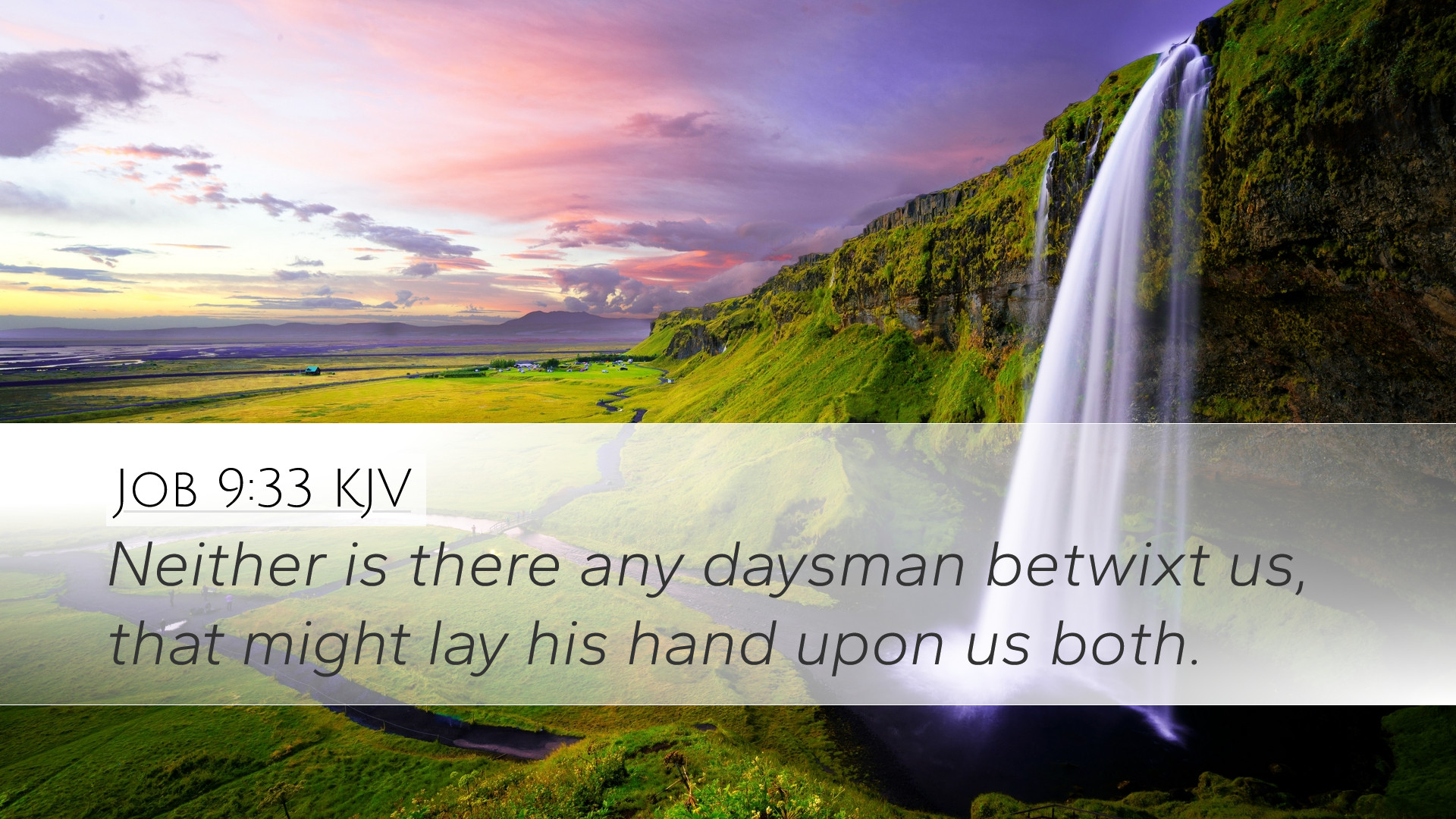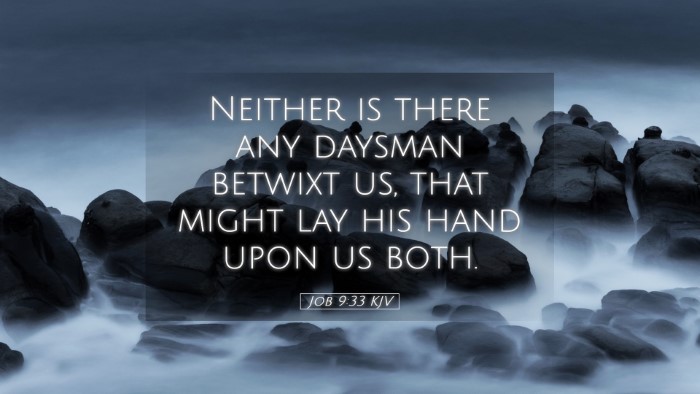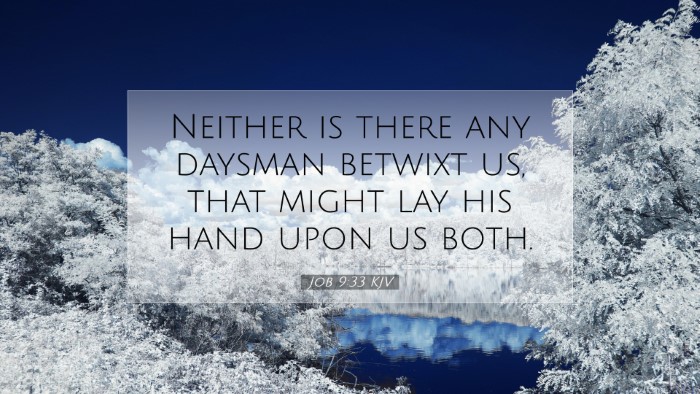Commentary on Job 9:33
Job 9:33 reads: "Neither is there any daysman betwixt us, that might lay his hand upon us both." This verse encapsulates Job's longing for mediatorship between himself and God, a profound concept that reverberates throughout the theological discourse.
Contextual Background
In the broader narrative of the Book of Job, Job is depicted as a righteous man who suffers immense trials. His friends argue that his suffering must be due to sin, while Job insists on his integrity. In this particular verse, Job expresses his desperation for someone who can bridge the gap between humanity and the divine—this "daysman" or mediator.
Insights from Public Domain Commentaries
Matthew Henry's Commentary
Matthew Henry emphasizes the significance of mediation in approaching God. He suggests that Job's cry reflects the universal need for an advocate who can represent humanity before divine justice. Henry posits that without a daysman, Job feels lost in his entreaties to God, echoing the human condition when faced with suffering and divine silence.
- The Role of a Mediator: Henry notes that the term "daysman" imply a need for someone who could intercede on Job's behalf. This role is essential as humanity often finds itself in a position where it cannot reach God by its own merit.
- The Assurance of God’s Presence: He observes that Job’s lament points to a longing for assurance that God is aware of his circumstances and willing to intervene.
Albert Barnes' Notes
Albert Barnes provides further depth by delineating the nature of this mediation. He explains that Job’s desire for a "daysman" illustrates a yearning for a reconciler who can establish peace between man and God in the context of suffering.
- God’s Justice vs. Human Sin: Barnes discusses the paradox of God’s justice, which often feels impenetrable to human beings. Job’s suffering leads him to wrestle with the apparent silence and distance of God.
- The Need for Hope: He asserts that Job's outcry for mediation is not a rejection of God’s sovereignty but a hopeful assertion of the necessity of hope amidst despair.
Adam Clarke's Commentary
Adam Clarke offers a linguistic analysis of the term "daysman." He suggests that this term indicates someone who "can lay his hand upon us both," symbolizing both sides of the relationship—divine and human. For Clarke, this underscores the duality inherent in Job's plea.
- Symbolism of Touch: Clarke emphasizes the power of physical touch as a symbol of connection, peace, and reconciliation. The "laying of hands" symbolizes a direct engagement between humanity and divinity.
- Historical Implications: He also brings in a historical context where the role of mediators was significant, projecting the importance of priestly roles in ancient Israel as examples of mediators in worship and sacrifice.
Theological Implications
This verse, while deeply rooted in Job’s narrative, has widespread theological implications. The longing for a mediator reflects a central tenet in Christian theology, where Christ is viewed as the ultimate mediator between God and humanity (1 Timothy 2:5).
- Human Condition: The existential anguish expressed in Job’s plea for a daysman resonates with the human condition—our relational distance from a holy God due to sin.
- Christ as Mediator: Reflecting on the New Testament, this verse can be seen as prefiguring the role of Christ, who fulfills the longing expressed by Job, cementing His position as the bridge over the chasm of sin.
Conclusion
Job 9:33 serves as a powerful reminder of the human need for mediation in the face of suffering. The insights from Matthew Henry, Albert Barnes, and Adam Clarke collectively highlight the depth of this longing and the theological significance embedded in Job’s cry. As pastors, students, theologians, and scholars reflect on this verse, they are reminded of both the frailty of human understanding before the divine and the hope found in the ultimate mediator, Jesus Christ.


